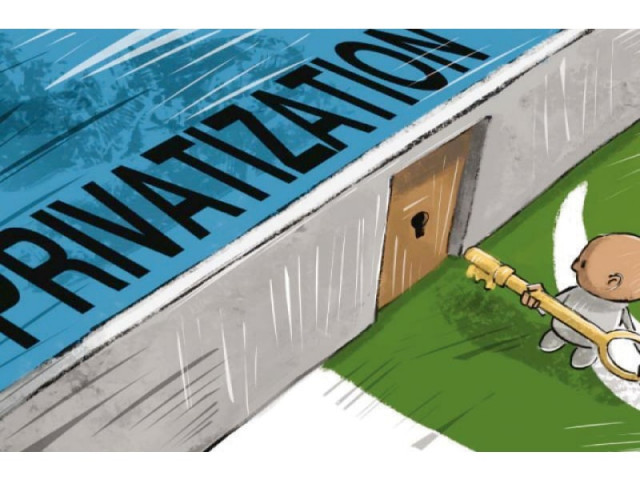To be privatised: FESCO, a gold mine for the private sector
It is one of the few distribution companies that post profits; assets amount to Rs160b.

The government has announced that it will fast-track the privatisation process for Fesco and the entity will be sold no later than July this year. CREATIVE COMMONS
As the government fast-tracks the process of privatising one of the profitable power distribution companies in the next six months, a close look at the financials and clientele of the Faisalabad Electric Supply Company (Fesco) uncovers that the purchaser will profit from the sale.
The government has announced that it will fast-track the privatisation process for Fesco and the entity will be sold no later than July this year.
Fesco is one of the top-ranked distribution companies in terms of profit, recovery and sharply lower transmission and distribution losses.
The company’s assets are approximately worth Rs160 billion and annual profit stood at Rs2.9 billion in fiscal year 2013-14 compared to Rs1.9 billion in 2010.
Faisalabad is the third largest city of the country and the second industrial hub. Fesco’s major buyers are industrial units that generate 44% of total revenues.
In terms of percentage, the industrial units are only 1% of the total consumer base. Fesco has 3.3 million customers including 44,992 industrial connections.
The entity is among few power distribution companies that are making a profit. The distribution company has 16,500 employees and the consensus is against its privatisation.
The company does not produce its own power, but rather buys it from state-owned and privately-owned power generation companies and sugar mills and sells it to residential, commercial and industrial consumers.
According to a Fesco official, against the National Electric Power Regulatory Authority’s (Nepra) approved 10% transmission and distribution losses, Fesco’s line losses stand at 9.6%.
On top of the lowest line losses, the company has the highest rate of bill recovery, which stands at 99.6%, making it an excellent case for a private sector buyer, claimed the official.
He added that the government should privatise the companies that continue to suffer losses or are have low recovery rates rather than handing over profitable entities to the private sector.
The administration of Fesco likewise appears to be more capable than other distribution companies.
The only other distribution company that can compete with Fesco is the Islamabad Electric Supply Company (Iesco).
“The privatisation policy cannot be the solution to the energy crisis, rather it will increase the burden on common people,” said Sarfraz Hundle, Secretary Pakistan Wapda Hydro Workers Union, while speaking to The Express Tribune.
He added that after privatisation, the employees will become insecure. “The previous administration, headed by the Pakistan Peoples Party (PPP), had also put up Fesco privatisation on the agenda but eventually had to abandon it after protests by the employees,” he said.
“If the government does not stop the privatisation process, the employees will shut down all the grid stations and resort to strikes, which will halt all activities in eight districts, since Fesco serves not only Faisalabad but also many of the adjoining eight districts in central Punjab.” These included Chiniot, Sargodha, Khusab, Mianwali, Toba Tek Singh, Jhang and Bhakkar.
“Past experiences of privatisation have failed to work well for the workers,” said Hundle. “The capitalist solely works for increasing the profits at the expense of human value and public benefit,” he added.
A Nishat Group official, who wishes to remain anonymous, confirmed to The Express Tribune that the group was keen on the purchase of Fesco.
Nishat Group already owns private power generation plants in Chunian, which has a generation capacity of 400 megawatts. The 700MW Lalpir power plant is also owned by the group, its Faisalabad plant is primarily supplying power to the group’s textile mills in the city.
He said if the group remains successful, it will install new captive power plants to resolve the issue of load-shedding in the eight districts where Fesco is responsible for the supplies.
In the past, the Crescent Group had also initially shown interest to acquire but it could not be confirmed whether the party is still interested. Indeed, the captive power plant at Crescent Textile Mills in Faisalabad has remained one of the biggest suppliers of electricity to Fesco.
Published in The Express Tribune, February 21st, 2015.
Like Business on Facebook, follow @TribuneBiz on Twitter to stay informed and join in the conversation.



















COMMENTS
Comments are moderated and generally will be posted if they are on-topic and not abusive.
For more information, please see our Comments FAQ